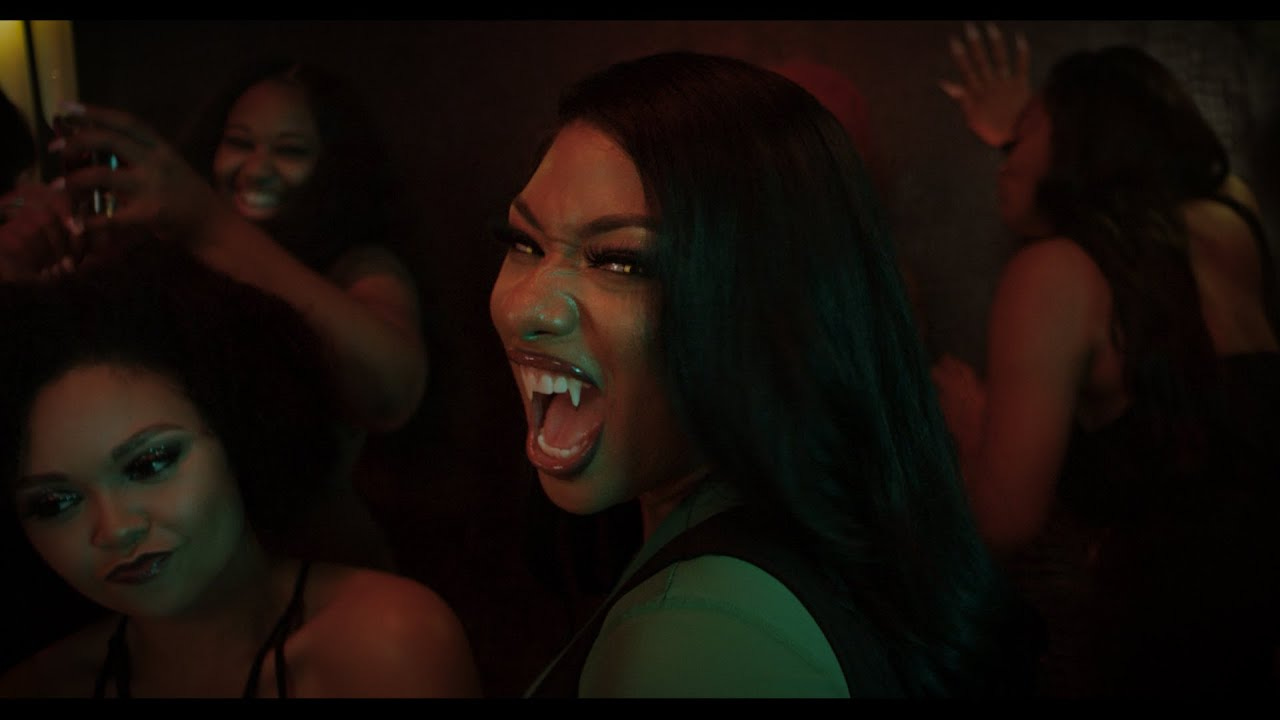- Liza from time to time
- Posts
- post 1: giveaway update, "notes on maneaters"
post 1: giveaway update, "notes on maneaters"
updates on the 'Loving Safoa' giveaway, and ruminations on "maneaters"
[originally published on Substack: Feb 19, 2024]
I hope you’re feeling alive this Monday. I’m kicking off this inaugural newsletter post with an update on the Loving Safoa giveaway, followed by a refurbished blog post (feat. “maneaters,” vampires and Megan Thee Stallion) that I drafted in 2022 but never published. The post seems even more timely now than it did when I conceived it.
Regarding the Loving Safoa giveaway: First, thank you for subscribing and otherwise supporting my writing! Second, winners of signed copies have been notified by email — If you were selected, I’ll mail them to you before the end of this week.
And my thoughts about maneaters are below.
- little “l” liza

Image Source: YouTube | “Megan Thee Stallion P.I. in HOTTIEWEEN (Episode 3: Hot Girl Sh*t)”
Fuck around get your heart broke, acting out of character…
You been rolling around, shit, I’m rolling up…
“You say I’m a woman and colored. Ain’t that the same as being a man?”
I’ve known a handful of men who have been cruel in ways that are particular to manhood. I think about these men sometimes — and when I do, I’m liable to listen to music performed by and about “maneaters.”
Maneaters embody feminist vengeance. In mainstream media, they’re usually cisgender, feminine women who have been wronged by male romantic partners — they’re good girls scorned, and bad girls who have learned from other women’s mistakes. They represent themselves as femmes fatales by way of vampy aesthetics — slick styling and dark colors. Sometimes they’re literal vampires, too — hunting men who seem to be predators. Enacting vigilante justice.
Megan Thee Stallion’s Hottieween YouTube series (dir. Teyana Taylor, 2019) is a semi-recent example of this bad-bitch genre. Accordingly, Stallion’s version of vampirism is not apolitical. Much like her music, her vampirism is black and feminist — taking “Fuccbois” (male vampires) who have wronged black women to task. In light of her more recent snake-laden records (“Hiss” 2024 and “Cobra” 2023), I’d like to revisit this miniseries, and Megan’s ongoing intervention in the maneater realm.
The three-episode miniseries makes its investments clear at the start of the first episode (“Love Bites”): from the waist down, we see a black woman walking at night in a mini-dress, her legs and stilettos glistening under streetlamps. As she draws closer to a group of masked, supernatural Fuccbois, the camera regards her face — capturing both her beauty and her trepidation.
That opening scene’s imagery and ambiance cue us into her vulnerability and her impending victimization. Moments later, the Fuccbois murder this woman while their leader (Archimedes) oversees them from a distance.
Soon, Stallion would be victimized by them too. Archimedes himself would turn her into a vampire, hoping to create a powerful female Fuccboi who harms black women just as much as her male counterparts.
In Hottieween, Stallion plays a fictional version of herself; she’s a private investigator in ‘Stallion County’ whose knowledge of Fuccbois’ violence does not spare her from it. Archimedes, the calculating Fuccboi leader, manages to overpower Stallion by charming her into a false sense of security — stealing her mortality while they flirt in a hotel room. When she wakes up, Stallion now has to contend with thwarting the Fuccbois’ pattern of violence against black women while being a vampire turned against her will. Like Blade, Stallion decides to use her vampiric powers to locate and defeat abusive vampires (in her case, Fuccbois) instead of taking advantage of mortals.
Becoming powerful enough to best Fuccbois required Stallion to become something like a Fuccboi. This is a counterintuitive game many women are enticed to play — a trap, if you will — and Hottieween offers an astute dramatization and refusal of that.
In the final face-off between Stallion and Archimedes, the Fuccboi leader tempted her to join him in feeding on black women. Thankfully, she had enough willpower to stand with her sisters, declaring, “You don’t make me, motherfucker — I make me.” When she killed Archimedes — the misogynistic devil on her shoulder — she regained her mortality. This was the cure she was looking for. She had to chop and screw some shit.
Further Reading / Viewing:
“Megan Thee Stallion: ‘For a long time, men owned sex. Now women are saying, ‘I want pleasure’’” (interview by Jonathan Heaf for GQ Magazine, 2020)
“Megan Thee Stallion: Why I Speak Up for Black Women” (op-ed, NY Times, 2020)
Vamp (dir. Richard Wenk, 1986), starring Grace Jones
Catwoman (dir. Pitof, 2004), starring Halle Berry — If you hate this movie, I recommend watching Kennie JD’s defense of it
Reply